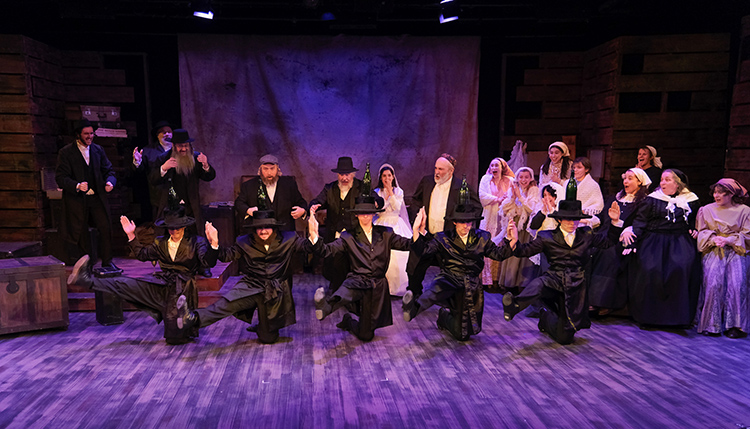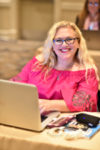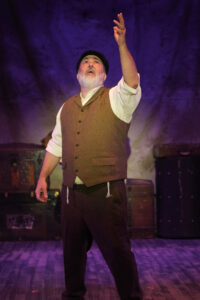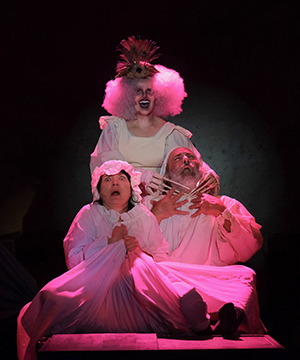
By Sandi Masori


SAN DIEGO— Now playing at San Diego Musical Theater is the play that is probably most well known and beloved to American Jews, as it tells the mythic story of how many of our families ended up in America. I’m talking about Fiddler On The Roof of course.
Just in case you’ve somehow never seen the movie or play, the show follows Jewish milkman Tevye (Matthew Henerson) who lives in a Russian village and is struggling with balancing tradition and changing times as he navigates his older daughters becoming of marriage age and the unrest and pogroms of the early 1900s.
Playwright Joseph Stein’s version is based on a story by Shalom Aleichem. The musical debuted on Broadway in 1964, and the original production and revivals have collected nine Tony awards. The 1971 film adaptation is probably the version most of us Gen-Xers first saw.

The San Diego show opens with the entire large cast singing “Tradition” and it’s perfect. The harmonies are on point, the staging and choreography work, it is a joyous rendition.
The entire first half of the play moves quickly and is energetic. And something else, I never really thought of Fiddler as a comedy before, but there is a level of humor injected into many of the songs that I had never seen before. Whether it was Tevye mugging during the dance off with the Russians for “To Life” or even the usually scary dream sequence about “Fruma-Sarah,” director Omri Schein really brings out the physical comedy and rubber faces of the cast. And it works. I don’t remember hearing the audience laugh during Fiddler as much they did for this show. The second act is more serious of course and has fewer comedic moments, though “Do you love me” gets a couple of giggles.
Choreographer Jill Gorrie Rovatsos really pulls out all the stops for the aforementioned “To Life” and the famous Bottle Dance numbers. Kudos go to dancers Andres Lagang, Giancarlo Lugo, Jaxon Smith, Joseph Stein, and Eli Wood.
Debra Wagner is compelling as Golde, and Tori Hitchcock stands out as Hodl. And of course, equity actor Henerson brings Tevye to life.
The fiddler (Jaxon Smith) was a little distracting in that he was holding a violin (or fiddle) but didn’t have a bow and was trying to mime playing the fiddle, but his movements were too big. It would have worked better had he been holding a bow and kept his movements a little smaller.
It’s a really large cast of around 25 people or so, so the set design has to be really creative. Mike Buckley solves this problem by keeping the stage mostly empty and using steamer trunks that move around the stage and become tables or the bed, or Tevye’s cart as necessary.
Obviously in this play I didn’t have to look for a Jewish angle, but I did find myself wondering what playing these roles meant to the non-Jewish cast. Especially now, when our identities and history are under attack, I wonder if being part of this fictional version of part of our history gave some empathy and awareness for what we have gone through. I hope so, and I hope that it will touch audiences in that way as well.
San Diego Musical Theaters always partners with a local non-profit and donates a portion of sales and donations to it. For this show the charity is Jewish Family Services. One of the most deserving charities in my personal opinion.
Fiddler plays through March 10. I was really happy to take my son to see it with me. It’s a great show for families, if for no other reason than so your kids too will have composer Jerry Bock’s and lyricist Sheldon Harnick’s earworm songs “Tradition”, “To Life”, “If I Were a Rich Man” and “Sunrise-Sunset” as part of their childhood, just like it was mine.
*
Sandi Masori is a food and theatre reviewer for San Diego Jewish World. When she’s not covering food or theatre, she helps authors self-publish, hangs out with her kids, and searches for the best sushi in town.
I saw the show this weekend and it was amazing. Definitely laughed more than I thought I would. My favorite was Sheira Stein as Fruma Sarah!
“Sunrise, Sunset” has become a staple of Jewish weddings, as ubiquitous as stomping on the glass. At my own wedding, one of our guests happened to be an opera singer. So, of course we recruited him. I later sang this song at the engagement party of a friend’s daughter, modifying the lyrics to be about them.
The show itself can be a great teaching tool not only for our own people but for others as well. The Palestinian propaganda machine has done a great job of pushing the false narrative of Jews as a colonizing power. And many non-Jews buy it because they simply don’t know any better. But the ending of this show couldn’t make it more clear. We were never a colonizing power. We were never the ones on horseback with flashing swords. We were refugees. We came back to The Land with little more than what we could carry, and we rebuilt a wasteland with hard work and limited resources. We will not give it up, nor will we let anyone take it away from us.